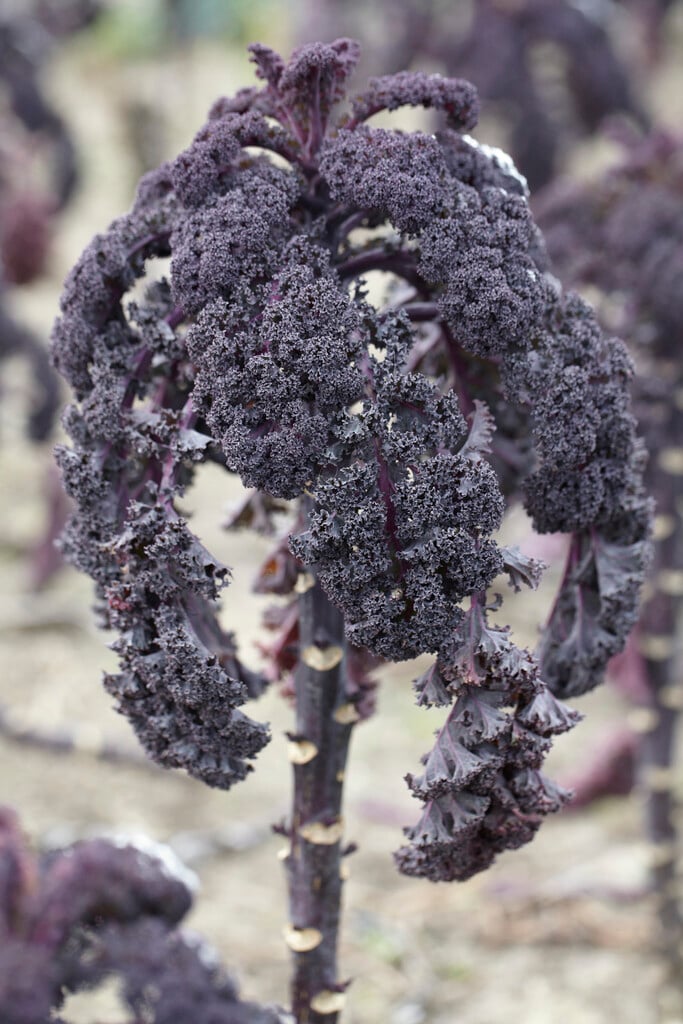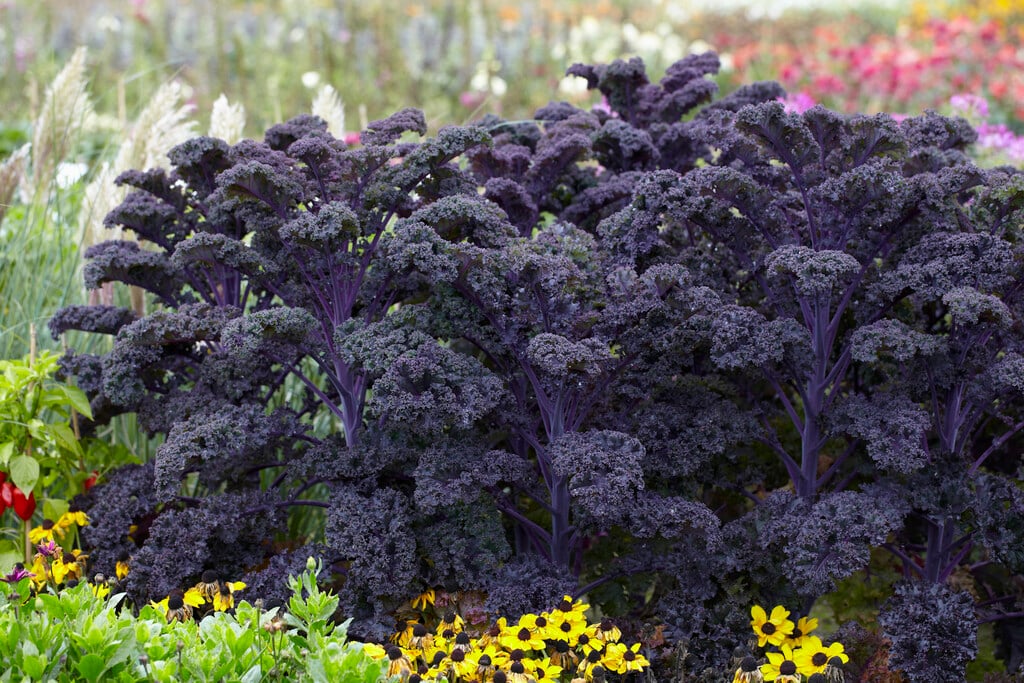Brassica oleracea (Acephala Group) 'Redbor'
borecole 'Redbor'
A hardy annual vegetable grown for its intensely curly, rich purple coloured leaves and excellent flavour. It is extremely hardy and makes a great Winter crop when the kitchen garden is often scarce. Harvest when the leaves are still young and tender. Shows good resistance to pests and diseases
Size
Ultimate height
0.5–1 metresTime to ultimate height
1 yearUltimate spread
0.1–0.5 metresGrowing conditions
Moisture
Well–drainedpH
Neutral, AlkalineColour & scent
| Stem | Flower | Foliage | Fruit | |
| Spring | ||||
|---|---|---|---|---|
| Summer | Green Purple | |||
| Autumn | Purple | |||
| Winter | Purple |
Position
- Full sun
Aspect
West–facing or South–facing
Exposure
Sheltered Hardiness
H5Botanical details
- Family
- Brassicaceae
- Native to GB / Ireland
- No
- Foliage
- Deciduous
- Habit
- Clump forming
- Genus
Brassicas can be annual, biennial or perennial plants, most are upright with alternate, often glaucous leaves, long taproots and clusters of cross-shaped, yellow or white flowers. The genus includes a number of species bred to produce food crops, such as cabbages, turnips, mustards and oilseed rape, as well as others grown for their ornamental value
- Name status
Accepted
How to grow
Cultivation
Grow in fertile, moist but well drained soil in full sun. Sow indoors in mid-Spring and prick out to modules or individual pots, transplant out in early Summer between May-July in rows 60cm apart. Keep well watered and cover with netting to protect from birds and insects. See vegetable cultivation
Propagation
Propagate by seed. See sowing vegetable seeds
Suggested planting locations and garden types
- Patio and container plants
Pruning
No pruning required. Remove yellowing leaves
Pests
May be susceptible to birds, cabbage whitefly, cabbage gall weevil, cabbage caterpillar, cutworms, slugs and snails, swede midge, mealy cabbage aphid, flea beetle
Diseases
Shows good disease tolerance but may be suscpetible to black root, downy mildew, foot and root rot, grey mould, leaf spot, white blister
Get involved
The Royal Horticultural Society is the UK’s leading gardening charity. We aim to enrich everyone’s life through plants, and make the UK a greener and more beautiful place.

